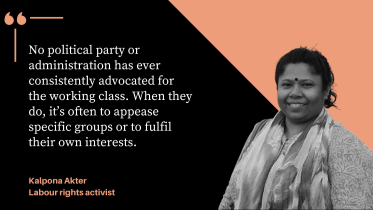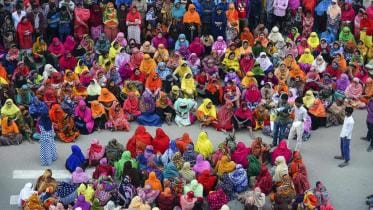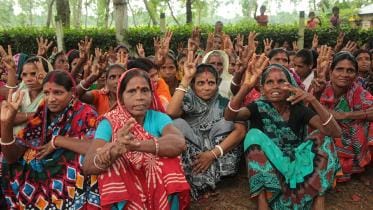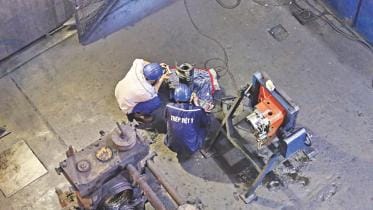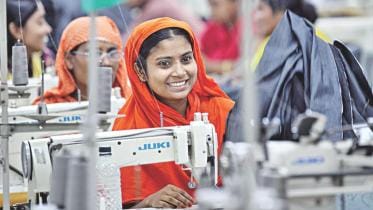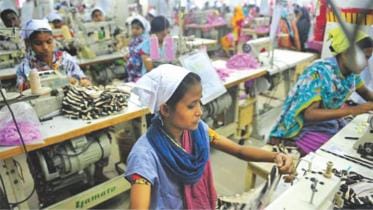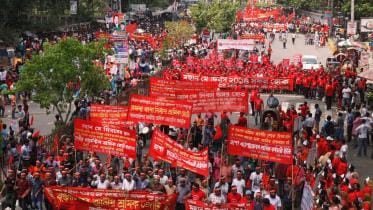workers rights
Violence in Bangladesh’s RMG sector: Disposable lives, dispensable labour
Can we imagine and construct a political system that refuses to subordinate human dignity to the demands of global accumulation?
6 September 2025, 03:00 AM
What's causing the unrest among factory workers?
Kalpona Akter, labour rights activist and president of Bangladesh Garment and Industrial Workers Federation, talks to The Daily Star.
3 November 2024, 04:00 AM
Making workplace safe for construction workers
Safety precautions in construction sites are frequently ignored in Bangladesh
27 November 2023, 03:00 AM
Books exploring workers’ rights in South Asia
In order to understand the background of the labour movements in South Asia or the plight of workers, here are some books to add to your reading list.
2 May 2023, 14:46 PM
5 books to read for International Workers’ Day
Concentrating on women workers from Bangladesh, Nepal, India and Pakistan, Women and Work in South Asia also tackles the advancement of individual corporate sectors due to the involvement of women workers.
1 May 2023, 04:30 AM
How should we address our core labour market challenges?
We need a strategy to deal with youth unemployment and improve women's inclusion into the economy
5 November 2022, 13:35 PM
Tea workers’ strike ends. What’s next?
Tea workers may not have had their demands fulfilled, but their united voice brings in a new era of workers' rights.
3 September 2022, 15:00 PM
Working for a brighter future in Asia
With nearly two decades of strong economic growth, the world’s highest employment ratios and lowest unemployment rates, and massive technological innovation, some say “Asia is the future” or even “The future is Asia”.
30 April 2019, 18:00 PM
How do we improve maternal health of garment workers?
The influx of millions of female workers to work at the garment factories has created unique health challenges, issues and needs that have mostly remained unstudied and unaddressed.
18 March 2019, 18:00 PM
Are our workers' rights so cheap?
A joint publication brought out by Oxfam, Bangladesh Institute of Labour Studies (BILS) and Institute for Workers and Trade Unions in Vietnam paints a dismal picture of workers in Bangladeshi factories where Australian fashion brands source their apparels from.
26 February 2019, 18:00 PM
Is the new model of trade unions the answer?
THE history and development of trade unions in the garment sector is different from other industrial sectors of Bangladesh.
30 April 2015, 18:00 PM




